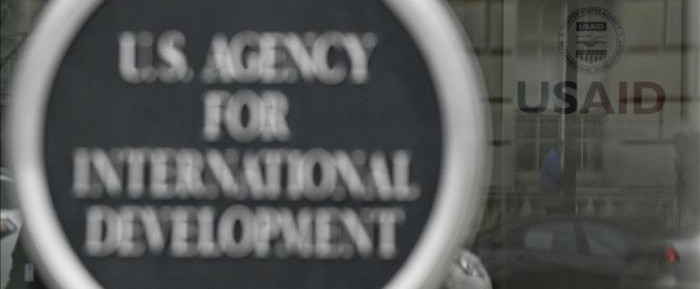(4 Minutes Read)
The closure of USAID can be re-examined in light of Africa’s vast reserves of rare earth metals and fertile land. The continent has essential raw materials for electronics and electric batteries, vital for the global EV revolution. If African countries united to restrict resource extraction, it could significantly affect the U.S. and other developed nations, as advanced digital products rely heavily on materials from Africa. This awareness is beginning to resonate among African leaders.
As Donald Trump pulled the plug on the USAID, panic has seemingly gripped the third world. Africa, home to the world’s poorest and most vulnerable people will probably be the worst affected. Key programs on humanitarian aid, health, education, food security, etc are halted, and nearly all its staff are placed on leave. The announcement came at a time when policies of the Trump administration like withdrawal from the Paris Accord and WHO are already portending consequences for Africa.
The USAID set up in 1961, was the world’s largest aid donor, disbursing more than US$40bn in the fiscal year 2023 to support development, poverty alleviation, and humanitarian programs. In Africa, it touched almost every aspect of development, from healthcare, education, livelihoods, famine relief, and access to clean water. Over the past five years, the Sub-Saharan African countries accounted for more than a third of the US foreign assistance spending.
The fallout has been immediate. There was no transition, but an abrupt end. Whether US aid closure leads to a humanitarian crisis in the third world, it is something to wait and watch.
The humanitarian support across Africa, in war-torn Sudanese cities, Kenyan clinics, and Mauritanian refugee camps, came to a halt. The soup kitchens that offer the only daily meal in war-ravaged countries no longer can feed the refugees, responders cannot reach the dead and wounded, and the ailing people cannot get medicines. According to relief workers, about 8 million people are on the brink of starvation. The suspension orders also applied to vaccinations, prenatal care for mothers, birth attendants for delivery, and treatment for malaria, cholera, TB, etc.
HIV/AIDS Program is one of the worst affected. For instance, South Africa is home to one of the world’s worst HIV/AIDS epidemics. About 8.5 million people here are living with HIV – and now their treatment is uncertain due to the break in the resource flow. HIV testing, counselling, and other social prevention programs like deliveries of antiretroviral medicines and contact tracing were stopped.
After a global outcry, programs that provide lifesaving humanitarian assistance were allowed to continue partially. For example, PEPFAR- a celebrated HIV/AIDS program launched by George W, Bush, that has saved millions of lives in Africa and still supports 20 million people, was allowed to continue. Yet, there is all-round confusion over where and how the exemptions apply.
The crisis is also happening at a time of colossal global upheaval. The continent — where the median age is 19 — is experiencing widespread conflict, forcing people to flee as illegal immigrants to the West. With the crackdown on illegal immigrants by the developed nations, these hapless people are caught in a bind.
The loss of USAID will be a major setback to the progress of Sustainable Development Goals (SDG). Blended Finance, one of the key tools designed to drive private investment towards the SDGs requires concessionary or grant capital from government-backed or philanthropic organizations like USAID. Historically, USAID has played a critical role as a provider of catalytic funding – grants, guarantees, technical assistance, operational costs, or legal and advisory services. The indisputable power of USAID to mobilize capital from other sources is now at stake.
The US-China rivalry has dominated the global dynamics. Both powers have been vying with each other for the influence of the Global South. By closing the shutters of USAID, political analysts say that the US has ceded ground to its chief rival, China. The US is again offering China a perfect opportunity to strengthen its soft power in countries including Africa. But the moot question is, will the needy countries benefit from China’s leadership? With only one superpower instead of the earlier two competing to fund Programmes, the recipient nations stand to lose their bargaining power.
The closure of USAID could not have come at a worse moment. The world today is in the middle of numerous challenges- rising geopolitical tensions, trade wars, and the escalating impacts of climate change. Africa, in particular, is fighting its own battles—soaring debt, political instability, widespread poverty, and environmental degradation. At a moment when vulnerable nations across the continent need increased support to navigate these crises, the closure of USAID threatens to exacerbate the already dire situation, spelling catastrophe for many.
The closure of USAID can be viewed from a different perspective. Africa has the largest reserves of rare earth metals and other essential raw materials used in manufacturing electronic products, including chips and electric batteries, which are crucial for the global EV revolution to address global warming. Additionally, the continent contains vast tracts of fertile land which has the potential to be the granary of the world enough to feed over seven billion people. If the 55 African countries unite to ban extracting these resources, it could significantly impact the U.S and other developed countries. The world’s most advanced digital products depend on raw materials like lithium, cadmium, iron ore, and copper sourced from Africa. This awakening is already dawning on the African leaders.





